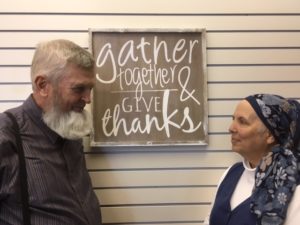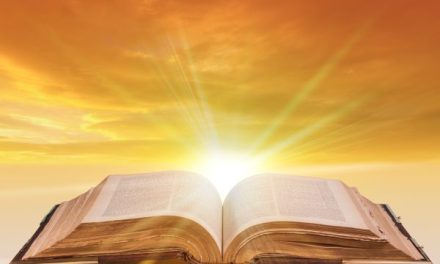Testing, Testing
By Jim Huskins
McDowell County
The Exodus is one of the most famous events in human history. Its purpose was more than moving God’s people from slavery in Egypt to freedom in the Promised Land. Along the way, God conveyed instructions for how His people should live. He also subjected them to a series of tests to determine if they were learning those lessons.
The Hebrew word for testing is nacha. It is a judicial term and conveys the idea of being on trial before a judge. Exodus 15:22 through 16:16 is a fascinating account of some of these examinations.
Following the Red Sea Crossing, Israel stopped at Marah where the water was undrinkable. From there they traveled to Elim where God began teaching them that they must stop worshipping many “gods” and focus their devotion on Him. In Exodus 15:26, God promises His people that, if they will follow His instructions for living, He will bless them with good health.
After Elim, as they travel toward Mt. Sinai, they run out of food. The people complain that Moses is trying to starve them. Their grumbling was directed to their human leaders, but it was actually against God. The tone of God’s response was neither anger nor disgust.
No one knows how many people left Egypt, but it could have been two to three million. They have been traveling for two months. No matter how much food they started with, it is now running low. God told them He would send quail at night and bread in the morning. Most of us learned about manna as children. My teachers either did not notice or did not think it important, that this miracle was accompanied by a test that established an important principle.
The instruction is this: He will provide all the manna they need, but He will only give them enough for one day at a time. On the day before Sabbath, they are to gather enough for two days. The provision of manna was about more than filling hungry bellies. By giving them miraculous food, God was teaching a powerful lesson: “This is so you shall know it was Yehovah who brought you out of Egypt.”
The Israelites did not understand who was responsible for leading them out of slavery. Every time they faced trouble, they blamed Moses. They were superstitious. They believed in magic and sorcery. They were not convinced that this god Yehovah had done all the mighty things they had seen. Moses was the visible human presence, so Moses caught the grief. It will be decades before Israel fully realizes that God is their only leader.
God commanded the entire community to draw near to Him. They saw the Glory of God in the cloud. This phrase, “the Glory of God,” is the English translation of the Hebrew phrase kevod Yehovah. This was the same divine presence that had been leading them, protecting them, and in full sight every day.
God’s presence is always available, but we must choose to draw near to Him. He will not violate our choice. When Israel stopped focusing on God, they became disheartened and disoriented. The same thing happens to us. We get used to the idea of Jesus within us, guiding us. Eventually, He becomes like an old piece of furniture or another feature of the landscape. We allow Him to go unnoticed. God’s presence never left Israel, but His people stopped paying attention.
The morning after they complained, the Israelites were greeted by a miracle. The ground was covered with something that looked like delicate frost. They turned to each other and said, “What is it?” Man hu is the Hebrew term. From it, we derive the English word “manna.” Moses tells them this is the bread from Heaven which God promised.
Each man was told to gather an “omer”—about ½ gallon—for each person in his household. Whether they gathered more than an omer or less than an omer, when they put it into an omer-sized jar, everyone had the same amount. The meaning of this event is long debated, but I believe that the implication is simple: When we devote ourselves to the faithful, obedient service of God Almighty, we do not need to horde; no need to rush out to be first to gather; no need to worry if we will have enough. In God’s economy, His bounty is endless. His definition of equality is not about giving everyone exactly the same. Rather, it is about giving each person exactly what they need.
The Hebrews are told to gather only enough to eat that day. They are to leave nothing overnight. This is the same instruction they received for the Passover lamb. They were to eat their fill but dispose of the remainder before morning. Many Israelites ignored that part of the teaching. To their disgust, they found leftover manna rotted and stinking.
This is almost comical. They would have been better off to simply follow God’s instructions. This was an important part of the test. Some failed because they were too arrogant to follow clear instructions, but let’s not be quick to condemn.
How often do you and I pick and choose from God’s instructions? How often do we follow the parts that make sense to us and skip the parts that do not? The Bible does not teach that “grace” allows us to ignore any section of God’s Word that we do not like. When Jesus was giving His final instructions to those who would be the Apostles of the Church, He told them plainly in John 14:15 “If you love me, keep my commandments.” Whether or not we choose to do so is part of our test.
Obedient Heart Fellowship believes that the entire Bible is both true and relevant. We accept salvation by grace through faith in Jesus, and we attempt to love and serve Him by keeping his commandments. See Revelation 14:12. lostranger@mindspring.com
________________________________________________________________________________
Jim & Beverly Huskins are members of Obedient Heart Fellowship. You can read more good news from Jim HERE.
________________________________________________________________________________








